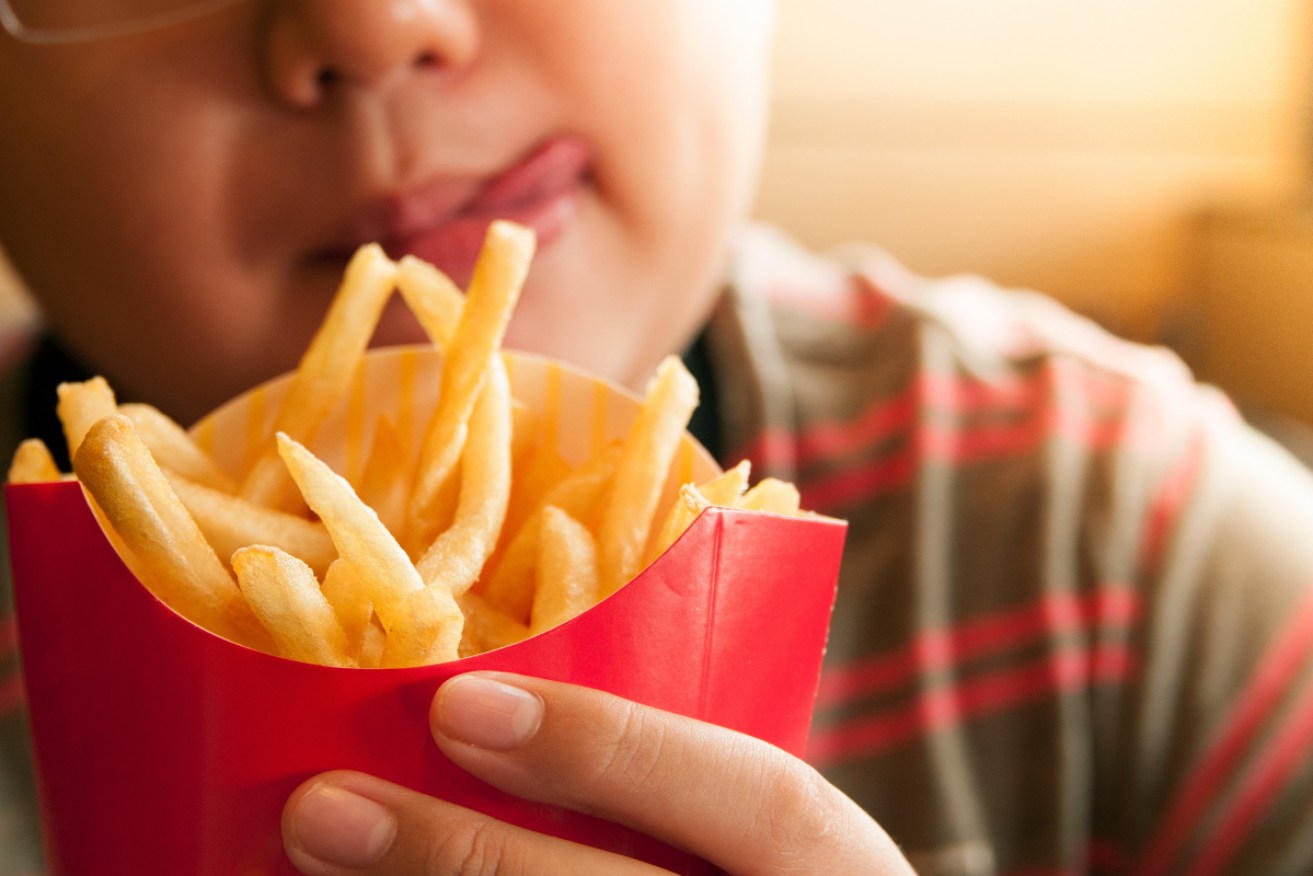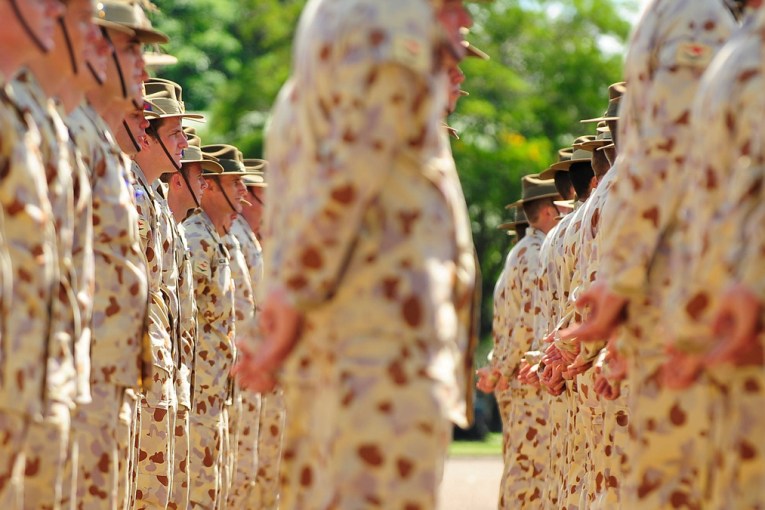Queensland government bins junk-food ads at bus stops and train stations, but not stadiums


The Queensland government is banning junk-food advertisements at government owned sites to tackle obesity rates. Photo: Getty
Queensland has banned junk food advertisements in a health kick announcement to battle big bellies and child obesity.
But the ban, announced on Sunday, won’t stop fast-food giants advertising at government-owned sports stadiums, or burger-and-fries-heavy restaurants from spruiking their ‘healthier options’.
It follows the news that almost one million Australians joined the ranks of the obese in the past three years, according to a report released by the Collective for Action on Obesity in late March.
It found almost a third of Australian adults are obese and a quarter of children are obese or overweight.
Queensland Health Minister Steven Miles said unhealthy marketing would be phased out at more than 2000 government-owned outdoor spaces, including bus stops, train stations and road corridors across the state.
“Junk food advertisers target kids. We know that and obesity in childhood is a leading indicator of obesity in adulthood,” Mr Miles said at a press conference on Easter Sunday.
Mr Miles said it would be working with health promotion groups such as Diabetes Australia Queensland, as well as the food and beverage industry to “codify” what constitutes junk food.
But the junk-food ban won’t be stopping fast-food giants advertising their ‘healthier options’, such as McDonald’s salads and sandwich wraps, if products are lower in fat, sugar and salt.
“If a food provider wanted to advertise healthier food options, that would still be allowed,” Mr Miles said.
Fast-food advertisers will also be able to continue advertising their burgers, soft drinks, fries and fried chicken at Queensland government-owned stadiums such as The Gabba, Lang Park and Carrara Stadium.
Mr Miles told reporters that the ban wouldn’t apply to stadiums “at this stage”, because contracts at sporting venues were much more complicated than properties the government owned outright.
“This is a chance for us to prove that it can work in places that the contracts are much more simple,” Mr Miles said.

Junk food advertisements will be banned in many public spaces. Photo: AAP
Deputy Opposition Leader Tim Mander said the ban was a “knee-jerk reaction” by the government to “deflect attention away from the current health crisis”, according to the ABC.
“We think the government should be focusing on hospital beds, not billboards,” Mr Mander said.
“If it was fair dinkum, it would not have reduced the preventative health budget by $300,000.
“These are items that are freely in the community and people need to make their own choices.”
Lyn Hamill, from Diabetes Australia Queensland, told reporters on Sunday that 80 per cent of Queenslanders were either overweight or obese, based on body mass index calculations, using height and weight.
Ms Hamill said children would often choose food from the “bright” and “shiny” advertisements that looked more interesting than an apple or pear.
“The removal of access to advertising will help Queenslanders actually move to make more healthy decisions about what they eat,” Ms Hamill said.
In February Cancer Council New South Wales found 72 per cent of food ads on buses and designated school routes were for junk food.
Using hypothetical school routes in 21 Sydney school areas, the study also revealed children using public transport saw 4.5 junk food ads per trip on average, more than double the number if they walked to school.








